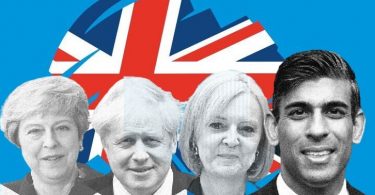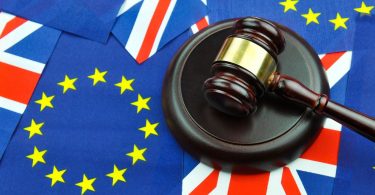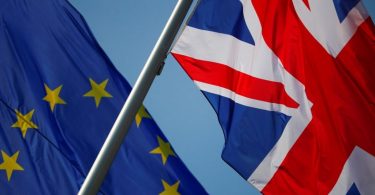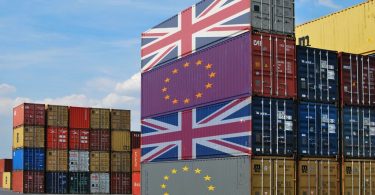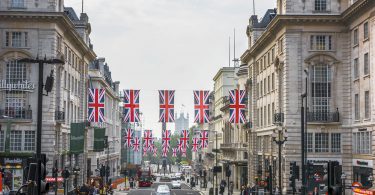A message from Martin Howe QC, Chairman of Lawyers for Britain, at 11.00pm on Friday 31 January 2020:
A decisive victory
A moment ago, the United Kingdom ceased being a Member State of the European Union as a matter of law. This represents a decisive victory over the forces which fought so bitterly to frustrate and deny the 2016 Referendum.
Legally, Brexit is now not reversible. In theory we could re-join, but only by making a new application for membership, with years of fraught accession negotiations. This not in the realm of political reality for the foreseeable future.
But nothing has yet changed at a practical level
We have taken a huge and politically symbolic step towards the UK regaining the democratic self-government which the British people voted for in 2016. But we are not there yet. At a practical level almost nothing has yet changed, until the end of the so-called ‘transition’ period on 31 December this year.
During the transition, we are no longer bound by the European Treaties as a Member State. But we are still legally bound by them under the Withdrawal Agreement (WA).
The hugely important European Communities Act 1972 gave direct effect under UK law to the European treaties and to vast swathes of legislation made under them. It also gave them supremacy over laws of UK origin, so that UK courts were thereafter bound to strike down Acts of Parliament if our courts – or the ECJ at Luxembourg – were to find them contrary to EU law.
This sovereignty-denying 1972 Act was formally repealed at 11.00pm as we left the EU. But its key clauses giving supremacy and direct effect to EU law are reiterated in last month’s Bill giving effect to the WA. UK courts must continue to strike down Acts of Parliament when directed to do so by the ECJ, across the board until the end of the transition. In some areas – notably EU citizens’ rights and Northern Ireland – even after the transition has ended.
The most obvious thing that will change is that there will be no British ministers present at Brussels to wield a vote or veto on our behalf, and no UK representation on the ECJ, the Commission or other EU institutions.
Making the best of the transition period
But despite qualms, this is the arrangement we now have and we should make best use of it. First, we should be making changes to our legislation in time to come into force on 1 January 2021 in the key high priority areas where we want to replace EU law with better laws of our own choosing.
Secondly, we should press ahead with our international trade policy, signing trade agreements to come into force if possible on 1 January 2021. Our trade with the rest of the world is already more important than our trade with the EU, and that is where most of the future growth will be.
At present, we are forced to import large quantities of food, clothing and cars from the EU at well above world prices, because the EU’s external tariff wall keeps out cheaper competing goods. From 1 January 2021 we will be able to import these goods more cheaply from outside the EU under tariff-free trade agreements or by adjusting our own tariffs. Boris Johnson’s government will be able to give an immediate Brexit dividend to voters in the “Red Wall” seats by cutting the costs of items which form a big part of the budgets of lower income families.
Finally, we will need to address the declining but still important part of our trade, which is with the EU. Any deal with the EU must be subordinate to, and must not be allowed to interfere with, our ability to re-cast our own laws or to conduct our global trade policy.
Problems with the EU’s demands
Unfortunately, the EU is asking for things that are not normal in a trade negotiation at all. It wants the ECJ to have indefinite oversight of any agreement with the UK, totally contrary to international treaty practice under which States simply do not abase themselves to be bound by foreign courts.
Not only does it want the UK to accept goods which conform with EU standards – a perfectly normal request – but it also wants the UK to ban imports or domestic production of goods which do not comply with its standards, in order to keep competing goods out of the UK market. This is abnormal and unjustified.
And outrageously, the EU is demanding that EU boats have the right to take away fish from UK waters as a condition of market access. This is rather like a big supermarket demanding that a farm should turn over half of its land for free in return for buying production from the remaining land.
Boris Johnson’s government will have to negotiate more than robustly with the EU in order to ensure that any deal with them does not throw away the control of our laws, borders money and international trade which the British people have voted for, and we will now achieve if we do not foolishly negotiate it away. Fortunately, he has made an excellent start by ruling out any extension to the transition period and rejecting “alignment” – for which read “subordination” – of UK laws to those of the EU.
The role of Lawyers for Britain
As I wrote on Brexit Central a few days ago, the role of Lawyers for Britain is not yet complete. We shall continue to work on the areas mentioned above, providing legal solutions and critiques.These areas are:-
-
-
- Desirable changes to UK law to be implemented from 1 January 2021 onwards;
- International trade negotiations and policy regarding global and non-EU trade;
- The negotiations with the EU.
-
At this point, I would like to thank all our friends and supporters who have contributed either their time and knowledge or money to help our work, which has played an important part in bringing the country to this historic moment of formal exit from the EU. But I would also ask for continued support for our work for this further vital phase until we regain control of our laws, borders, money and international trade policy in reality.
As Sir Francis Drake wrote in his letter to Sir Francis Walsingham in 1587: “There must be a beginning of any great matter, but the continuing unto the end until it be thoroughly finished yields the true glory.”



